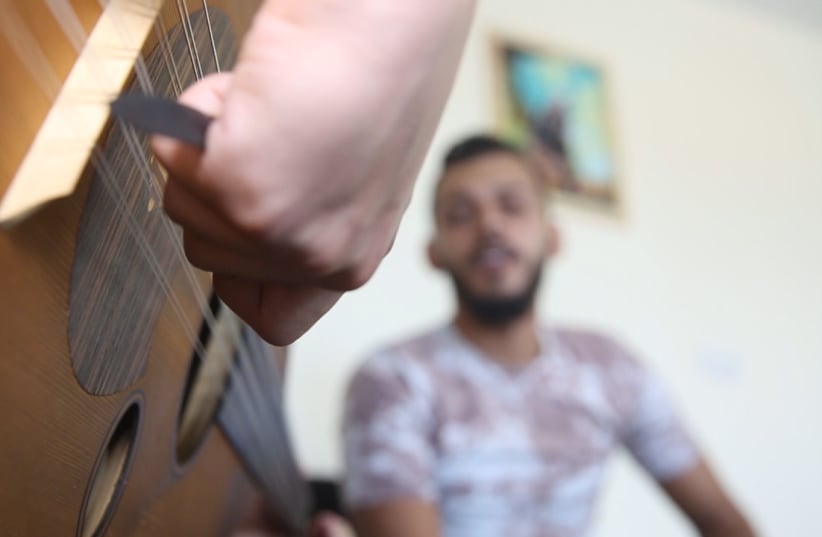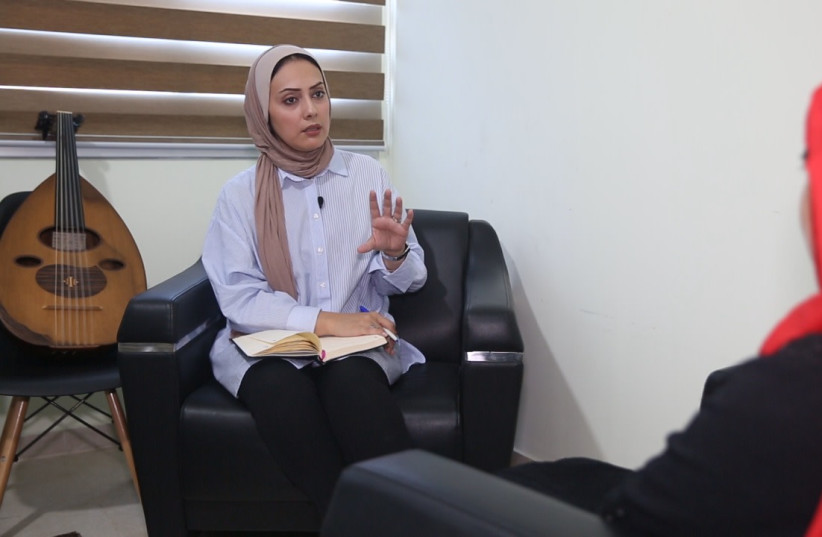The number of people in severe psychological distress continues to rise in the Gaza Strip.
“The incidence of mental disorders in the Gaza Strip has reached 22%,” Samah Jabr, a psychiatrist and head of the Mental Health Unit in the Palestinian Health Ministry, said in October.
“This percentage is 12 points higher than the normal rate in other countries due to the ongoing Israeli violations against our people, in addition to diseases related to genetic and biological aspects,” she added.
As a result of the low standard of living, high unemployment and high poverty rate, the frustrating political conditions, and the crashing economy, Gaza’s more than two million inhabitants live under heavy psychological pressure, in a state that can be likened to a time bomb.
All these circumstances combine to create an ideal environment for psychological disorders to emerge among nearly all age groups, psychologist Raeda Weshah told The Media Line.
“Because of the constant exposure to psychological trauma triggers, children, for instance, are showing some seriously disturbed behaviors such as extreme aggression, excessive movement and lack of focus,” Weshah said.
“Even adults have begun to suffer from excessive nervousness and excessive violent behavior with reactions disproportionate to the circumstances,” she continued. “Unfortunately, the situation has gotten even worse and the strip’s mental health has become further at risk with the spread of the COVID-19 pandemic.”
In an attempt to alleviate the devastating psychological effects experienced by residents, the Gaza-based Kayan Cultural Center, with the help of its psychological counseling unit, decided to combine traditional psychiatric treatment with music therapy.
“Music therapy is not new but [the conservative] Gaza residents are not familiar with it, despite the exceptional conditions and the state of war they live under,” Taghreed Shafout, a therapist and CEO of the Kayan center, told The Media Line.
As part of the center’s effort to encourage Gazans to build a healthy relationship with psychotherapy, it provides “special psychological support where individual and group music therapy sessions using certain musical notes are being held to help individuals who suffer from certain psychological issues, overcome the negative psychological effects of trauma, relieve pressure, and improve their general mood,” Shafout said.
Most of the center’s patients are university students who experience pre-exam stress and post-trauma stress, especially after the latest violent escalation with Israel last May, according to Shafout.
“Our programs include a variety of creative activities, including musical events and regular poetry recitals designed to provide group psychological relief. This has led to a remarkable shift in Gazan attitudes toward this type of therapy, and helped many to overcome their personal struggles,” she said.
Shafout cites one of the best success stories, a college student who overcame serious psychological post-trauma side effects that emerged after May’s 11-day cross-border violence between Gaza and Israel.
“He described himself as being confused and unfocused most of the time, with sleep and eating disorders worsening the crisis. All he could hear was the screams of his neighbors who were targeted during the Israeli airstrikes, which made it difficult for him to maintain good academic achievement,” Shafout said.
However, she said: “After three sessions he started to regain his clarity of mind and mental balance, and he became more focused, organized and positive as well, which made me happy and feeling proud of him.”
Shafout said she hopes that her small project, which is bringing peace to people in desperate need of psychological relief, “will be embraced and supported so it can help more people.”

